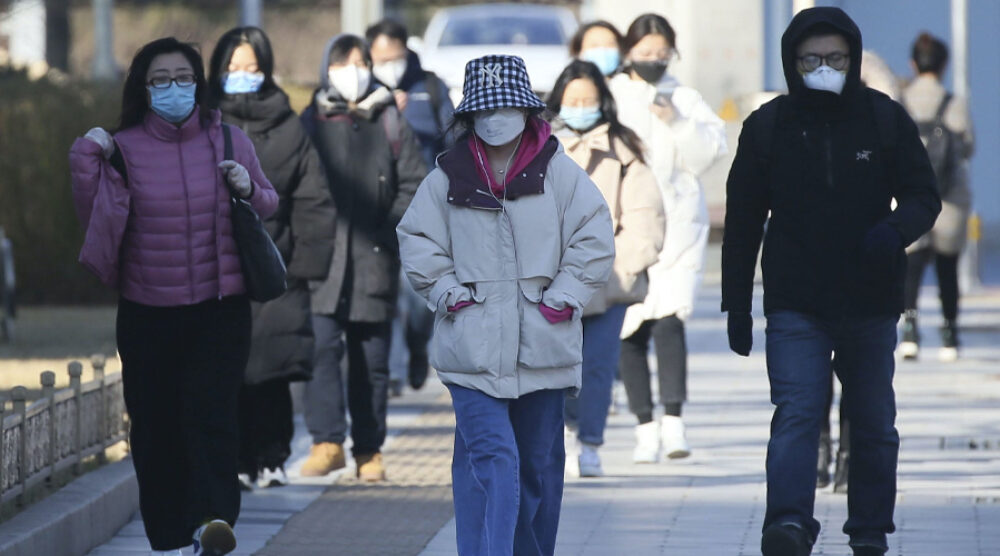Historically, repression of Christianity in China has included surveillance of members and their gathering spots, destruction and closing of church buildings and restrictions of young people from being baptised as well as harassment of parishioners by party officials. But the experience for practicing Christians in China has changed with the arrival of the COVID-19 pandemic. Three distinct trends have emerged.
Changes to persecution
COVID-19 has encouraged the relaxing of persecutions on official Christians nationwide most likely due to the large number of public officials needed to combat the pandemic. Manpower is simply not available to simultaneously crackdown on Christians. Even small but frequent acts by party officials, such as tearing down Christian messages from people’s homes, has been a stopped. While house churches are forced to disband as part of the pre-COVID-19 crackdown, churches have still been able to grow through the easy access and shareability of online sermons. Ministers are finding lockdown as providing relaxed conditions in which they get the opportunity to preach and freely move to parishioners’ houses and celebrate mass; cessation of peoples’ movement in and out of cities limits official oversight. The change in oversight conditions of the state appears to be replaced internal organisational disagreements as to how they should operate in this time of crisis.
However, for some Christian individuals their situations have deteriorated with the onset of the pandemic. Those with any criminal record akin to “Organising and using a cult to undermine implementation of the law” are often stuck between COVID-19 related unemployment and ongoing religion related harassment by law enforcement.
Churches moving online
As the government enforced isolation early in China, weekly religious services were either suspended or moved online. Over the Good Friday-Easter Sunday weekend, parishioners in many cases settled on preparing their own Eucharist at home in sermons online. To assure their continuance throughout the pandemic, Churches have offered services online with WeChat and Zoom. It may be a change that lasts beyond the pandemic and leads to the survival and growth of the underground church – despite the official policies.
The Chinese Communist Party (CCP) has been well aware of the potential of the internet’s use for religious purposes. In response in 2018, the “Internet Religious Information Management Measures” bill was drafted. The bill requires all religious websites to be registered and monitored by the State Administration for Religious Affairs. Officially, Churches cannot use the internet to broadcast by text, images, audio or video religious activities including mass and baptism. Despite this, churches have still managed to flourish and grow at a time when isolated people have needed consolation and church services, that has often been shared by those already members. The online environment makes it possible to gather more parishioners at once, somewhat more discreetly, and its ease of access also makes it a way for newcomers to join.
Never waste a good crisis
Both the CCP and Chinese Christians have used the pandemic as an opportunity in some way. There are many examples of religious humanitarian efforts to assist their countrymen, raising funds and providing much needed supplies to the wider community. Religious groups raised USD30 million by February alone. The Beijing Protestant churches raised USD10,000 to supply face masks to Wuhan communities, but were often harassed by police for doing so. Ultimately, Wuhan’s local officials were forced to reject the supplies. Conversely in other regions, religious organisations’ assistance was requested, and churches were afforded an opportunity to realise an altruistic purpose.
Additionally, church leaders have been using the lesser persecution as a chance to teach about public health and personal hygiene for sake of public health. They have also encouraged parishioners to take a humanitarian role and actively taking on activities deemed patriotic, which could sway broader public opinion of Christians and lessen future persecution by the CCP. There is inherent danger in this approach, however, as the CCP baulks at donations by civil societies. The CCP wishes to control the flow so as not to allow broader society to look to leadership from anyone apart from the state.
Now there is the constant worry in the CCP that charity will be used by religious organisations to expand their base and infiltrate society further. Indeed, the religious revival and sentiment that the religious groups provide is an alternative for guidance and help away from the alleged corrupt charities managed by the government. This trend reveals a possibility of broader Christian influence on society where the public support garnered could lead to the church being stronger in a post-COVID-19 China.
RMS (contributed)





